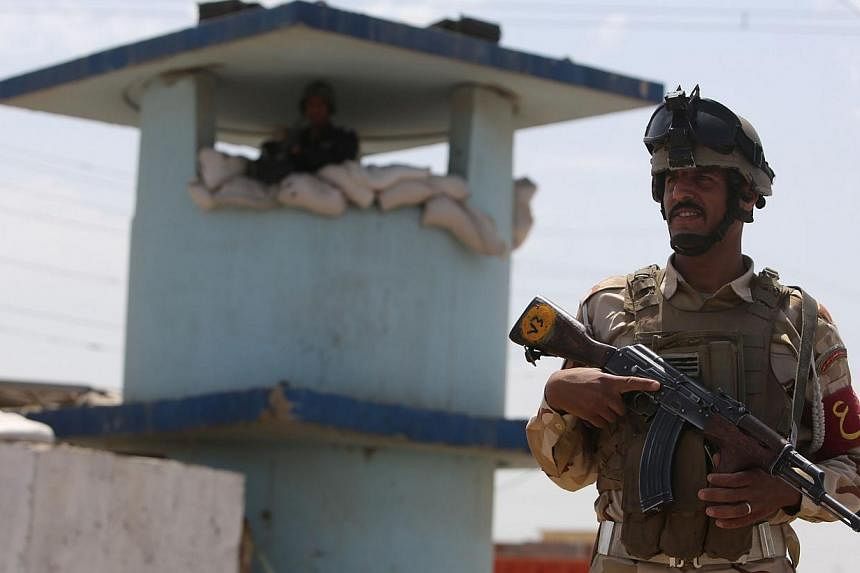WASHINGTON (AFP) - Iraqi leaders failed to strengthen and support the nation's military after US troops withdrew despite billions of American dollars poured into training and equipping the army, officials said on Friday.
State Department deputy spokesman Marie Harf also dismissed criticism from Republican lawmakers that a residual US force would have stopped the Iraqi army from collapsing in face of this week's militant assault.
"When we left Iraq, after years of sacrifice and American taxpayer money, and certainly our troops felt that sacrifice more than anyone, the Iraqis had an opportunity," Harf told reporters.
"We had helped their security forces. We had helped their army," she insisted.
"We had gotten them on their feet and helped build their capacity, and quite frankly, they did not take advantage of that opportunity." Instead, Iraqi leaders "created a climate where there were vulnerabilities when it came to the cohesion of the Iraqi army," Harf said.
The Islamic State of Iraq and the Levant captured Iraq's second city Mosul in a lightning offensive on Tuesday, before advancing south toward Baghdad.
And despite billions spent on training Iraqi security forces, US officials said they were disappointed to see them just melt away in the face of ISIL's onslaught.
"Iraqi security forces have proven unable to defend a number of cities, which has allowed the terrorists to overrun a part of Iraq's territory," US President Barack Obama said.
Harf also took issue with angry criticism from Republican John McCain who renewed his call for the entire US national security team, which includes the State Department, to be replaced.
"If we'd had had a residual force there to stabilise the country, as we have in Bosnia after that conflict and all the other ones like Germany and Japan, Korea, I think it would have had a dramatically different effect" on the behaviour of Prime Minister Nuri al-Maliki, McCain said on MSNBC television.
Washington withdrew all its forces in 2011, when Iraqi leaders refused to sign a deal to provide legal protections for US troops.
But McCain insisted that any "residual force left behind in Iraq was not in danger of any casualties of any significance because we had the conflict won, for all intents and purposes." Harf hit back however, saying: "It's in some ways naive to think that the United States, by having a few thousand noncombat troops, could have prevented the political leaders from contributing to this climate that we've seen." "If people argue that that would have been the magic bullet, I think they need to take a hard look at the facts on the ground," she added.

